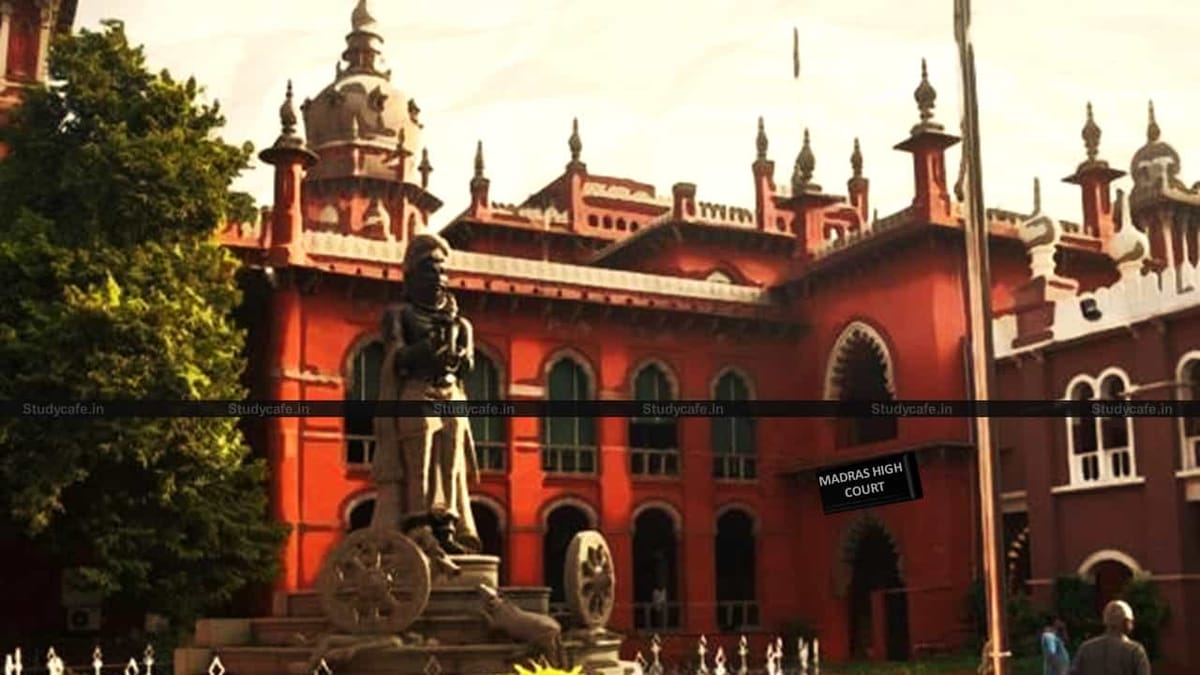Madras High Court: Excess of income over expenditure by itself not a reason to hold that the assessee is not engaged in charitable activities and is not entitled to avail benefit of Section 11 of the Income Tax Act, 1961 and registration under Section 12AA of the Act
Devyani | Sep 4, 2021 |

Excess of income over expenditure is not a reason to conclude that assessee is not engaged in charitable activities
Madras High Court: Excess of income over expenditure by itself not a reason to hold that the assessee is not engaged in charitable activities and is not entitled to avail benefit of Section 11 of the Income Tax Act, 1961 and registration under Section 12AA of the Act
The Extract of the Judgment as follows :
The assessee-Trust was established for the purpose of administering matriculation school offering education both in Tamil and English medium. It had also established a Teachers Training College during the financial year 2007-08. The income for four financial years was taken into consideration by the CIT and noting the figures opined that the income is in excess of expenditure for both the educational institutions and came to the conclusion that the Trust has been established with a clear motive of earning profits.
The Hon’ble bench of Madras High Court, relied on several judgments including Addl. CIT v. Surat Art Silk Cloth Mfr. Association; (1980) 121 ITR 1, where the Hon’ble Supreme Court dealt with the question that the activity must, however, be for profit in order to attract the exclusionary clause and the question therefore, is when can an activity be said to be one for profit? It was held that it is not enough that as a matter of fact, an activity results in profit, but it must be carried on with the object of earning profit. It was further observed that profit-making must be the end to which the activity must be directed or in other words, the predominant object of the activity must be making a profit.
That the Hon’ble High Court was therefore pleased to observe that the CIT had not rendered any finding that the activities of the Trust were carried on only with the object of earning profit and whether such was the object of the assessee-Trust, no such finding had been rendered by the CIT. The explanation offered by the assessee-Trust was that on account of various other educational institutions coming up in the neighbourhood, the income generated from the school had grossly fallen down and at that juncture, the Trust took a decision to establish a Teacher Training College, which proved to be successful. The specific case of the assessee-Trust was that they have provided free bus services to the students, who opted to study in Tamil medium. This was with a view to encourage students to attend the school and obviously would fulfil the object for which the Trust was established. Therefore, Hon’ble High Court was pleased to uphold the decision of ITAT, Chennai (hereinafter ‘Tribunal’) was right in holding that the CIT has not brought down any material on record to show that the assessee-Trust was motivated by earning profit. The Tribunal appreciated the assessee-Trust for establishing the school with medium of instruction in Tamil and that itself was held to be a charitable activity carried on by the assessee-Trust and by providing free bus service, it would motivate the students to attend the school and get themselves educated in Tamil medium and merely because, bus services were provided free of cost cannot be treated to be an activity for making profit. The assessee’s institution was rightly regarded as an institution carrying on educational activity and in the absence of any material available with the CIT,it was held that the Tribunal was right in itself observing that there was nothing on record to show that the Teachers Training College had been established solely for making profit. Furthermore, the Tribunal was right in its observation that excess of income over expenditure by itself was not a reason to hold that the assessee-Trust was not engaged in charitable activities. Furthermore, there was no finding that the Trustees had applied the monies of the Trust for their personal benefit or for any other purpose other than education. The infrastructure facilities, which were provided by the assessee- Trust were also rightly taken note of by the Tribunal.
In case of any Doubt regarding Membership you can mail us at contact@studycafe.in
Join Studycafe's WhatsApp Group or Telegram Channel for Latest Updates on Government Job, Sarkari Naukri, Private Jobs, Income Tax, GST, Companies Act, Judgements and CA, CS, ICWA, and MUCH MORE!"